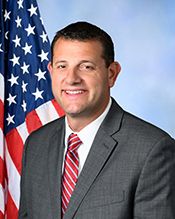0
To amend chapter 8 of title 5, United States Code, to provide that major rules of the executive branch shall have no force or effect unless a joint resolution of approval is enacted into law.
1/16/2025, 9:06 AM
Summary of Bill HR 142
Under the REINS Act, any major rule proposed by the executive branch would have to be submitted to Congress for approval. A major rule is defined as any regulation that has an annual economic impact of $100 million or more, has a significant impact on the economy, or imposes a major cost on individuals or businesses.
If Congress does not approve the major rule through a joint resolution within a certain timeframe, typically 70 legislative days, the rule would not be able to take effect. This would give Congress more oversight and control over the regulations created by the executive branch. Supporters of the REINS Act argue that it would help to prevent overreach by the executive branch and ensure that major regulations are thoroughly reviewed by Congress before being implemented. Critics, however, are concerned that the bill could hinder the ability of the executive branch to effectively regulate important issues. Overall, the REINS Act seeks to increase transparency and accountability in the regulatory process by requiring congressional approval for major rules created by the executive branch.
Congressional Summary of HR 142
Regulations from the Executive in Need of Scrutiny Act of 2025
This bill revises provisions relating to congressional review of agency rulemaking.
Specifically, the bill establishes a congressional approval process for a major rule. A major rule may only take effect if Congress approves of the rule. A major rule is a rule that has resulted in or is likely to result in (1) an annual effect on the economy of $100 million or more; (2) a major increase in costs or prices for consumers, individual industries, government agencies, or geographic regions; or (3) significant adverse effects on competition, employment, investment, productivity, innovation, or the ability of U.S.-based enterprises to compete with foreign-based enterprises.
The bill generally preserves the current congressional review process for a nonmajor rule.





